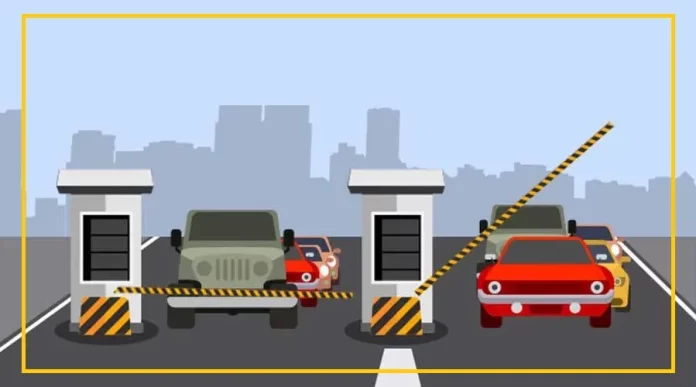Starting September 1, toll rates at the Badarpur flyover linking Delhi to Faridabad will rise by around nine rupees.
For light vehicles like cars and jeeps, the toll will go up to Rs 35 from Rs 32 for one-way passage.
The National Highways Authority of India (NHAI) has granted approval for this toll tax rate hike.
As per the decision, light commercial vehicles will now pay Rs 52 instead of Rs 48, while heavy vehicles will be charged Rs 104 instead of Rs 95.
Furthermore, drivers will need to pay more for monthly passes, as NHAI has increased the pass rates.
Commute Distress Due to Toll Tax Increase
Many drivers are expressing their dissatisfaction with the toll tax increase. They argue that a hike of Rs 9 is unreasonable. NHAI tends to raise rates annually, yet the corresponding facilities don’t see an upgrade.
Impact on Badarpur Flyover Commuters
The toll increase will affect about one lakh motorists who regularly travel between Faridabad and Delhi via the Badarpur flyover.
Annual Toll Hikes, Unchanged Facilities
NHAI consistently raises toll rates on the Delhi-Agra Highway and Badarpur flyover, yet the infrastructure and services along the highway remain largely unchanged.
After accidents or other incidents, vehicles often experience prolonged delays, as clearing accident sites or obstructions takes considerable time.
Call for Improved Facilities
Commuters demand that along with toll tax increases, there should be concurrent improvements in facilities.
A recent road accident involving a camel on the Barkhal flyover of the Delhi-Agra highway caused a significant traffic jam due to the delayed arrival of an animal ambulance.
This incident underscores the need for better facilities and quicker incident response.
Rules for Better Highway Facilities
Swift Ambulance Response: Ambulances, equipped with GPS, should reach accident sites within 20 minutes, staffed with trained paramedics and necessary medical supplies.
Efficient Accident Clearance: Cranes equipped with GPS should be stationed along the highway and dispatched within 30 minutes of an accident to swiftly remove vehicles from the scene.
Patrol Vehicles: Regular patrolling vehicles should be present on the highway to offer immediate assistance to drivers in distress.
Patrolling staff should receive proper training.
Amenities at Toll Plazas: Toll booths must provide amenities like drinking water, toilets, and parking facilities.
Emergency services, such as tire repair and fuel provision, should also be available.
